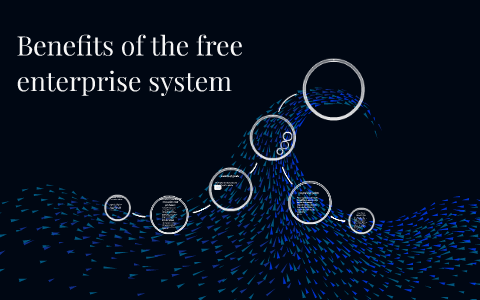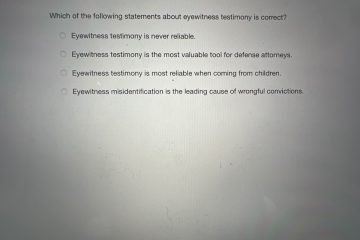In a free-enterprise system, consumers decide?

In a free-enterprise system, consumers decide?
A. how to set prices
Elevate Your Writing with Our Free Writing Tools!
Did you know that we provide a free essay and speech generator, plagiarism checker, summarizer, paraphraser, and other writing tools for free?
Access Free Writing ToolsB. which goods to export
C. how to use materials
D. which services to buy
Answer; D. which services to buy
Explanation
Free- enterprise system allows consumers to decide on which services to buy according to their interests. In this system, consumers are free to make their own decisions regarding economic purchases.
Economics is one of the most important social science fields. In economics you are required to comprehend, examine, visualize and grasp the tough economics concepts. Regardless of the topic or concept being tackled, our skilled economics experts are ready to help with college economics homework and ensure that you get an A+ grade.
Definition of Free Enterprise?
Free enterprise is a system of economic organization and social philosophy that markets goods and services in a free market. This means that investors own the private companies, but still share in the rewards of profit for their investments.
Government regulation is kept to an absolute minimum and participants are allowed to follow their satisfaction with no outside interference. Stated simply, Free Enterprise allows companies to decide through market forces what should be produced or distributed, without unnecessary government intervention which can often excessively increase costs for consumers.
What are the Benefits of free Enterprise?
The benefits of free enterprise include:
1. Production of a variety of goods and services
Free enterprise permits the production of varied goods and services. This allows the market to choose the most needed goods, which may be new technologies, completely different goods, or those with simpler designs and functions. For example, a free enterprise system would allow for the creation of designer clothes lines that produce different styles for different tastes.
In a free enterprise system, there is no need for companies to restrict their output based on any one particular item. The market chooses what is most needed and provides people with a wide range of options without government interference.
2. Open opportunity to participate in the market
Free enterprise allows people from all walks of life to participate in the market. In a free enterprise economy, there are entry barriers that provide hurdles for new participants, but even those who lack education or start with little capital can own a business.
This is not the case with centrally planned economies or economic systems which have certain restrictions on who can and cannot invest. For example, a typical centrally planned economy would most likely prohibit any individual without an advanced degree to work in their system.
Free enterprise allows companies to decide through market forces what should be produced or distributed, without unnecessary government intervention which can often excessively increase costs for consumers.
3. Minimization of corruption
Corruption is kept to a minimum in a free enterprise system as a result of competition. Since companies need to keep their profits and competition high, they must emphasize efficiency and integrity. No official will receive large sums of money because the system is not dependent on the official to make decisions.
Instead, those participating in the market have choices in the available companies and the individual for their decision-making. This provides an incentive for companies to maintain a high level of integrity since it is one of their main goals to survive in the market. For example, a company can provide poor-quality products or services and quickly fall out of favor with consumers.
4. Encouragement of innovation and competition
A free enterprise system encourages innovation as a means to succeed in the market. This innovation is found in many forms such as design and manufacturing processes. In a centrally planned economy, one company is often given state subsidies to help them succeed and this makes it difficult for others to compete. However, in a free enterprise system, companies are encouraged to innovate as a necessity to succeed in the market.
Rights of Consumers in Free Enterprise
1. Freedom to choose
In a free enterprise system, consumers have a wide range of choices available to them. This is a result of open competition and the ability of companies to offer any products or services they see fit. For example, one company may only sell designer clothes lines, while others decide to provide simple metal options for those who do not need anything special. Consumers have the freedom in this state to choose what they feel is best for them.
2. Freedom to pay for goods and services
Consumers also have the freedom to pay for goods and services in a free enterprise system. The only way consumers can increase their income is by participating in the economy by starting a business or having one generate profit from their money.
For example, if a person wanted to buy a designer clothes line, they could choose to either make and sell clothes or buy one from someone else. This is not possible in a centrally planned economy since the government controls what can be produced or where businesses may operate.
3. Freedom to legally sue businesses
Legal action is allowed in free enterprise systems between companies and their customers. This freedom allows for lawsuits to be brought forth if a company fails to live up to its end of the bargain. This may occur if the business has harmed a customer in some way or has failed to perform the service they were paid for.
For example, if someone purchases clothes and they are not made correctly, they could bring forth legal action against the business.
4. Freedom to buy and sell goods
Consumers have the freedom to buy and sell goods in free enterprise systems. This is also a result of open competition and the ability of companies to provide various goods and services. In a centrally planned economy, certain businesses are often given special privileges by the government which forces consumers to buy from them or face persecution because they cannot obtain certain necessities.
Rights of Producers in Free Enterprise
1. Freedom to pursue profits
As a result of competition, producers in a free enterprise system have the freedom to pursue profits. For them to do this, they must provide efficient enough services or goods that consumers will choose those options over their competitors.
For example, in a free enterprise system, if the price for designer clothes lines is too high, consumers may purchase a cheaper option or go without. It is similar to it being very difficult to sell a product that no one wants.
2. Freedom from the uncertainty of the market
This is a form of freedom that is essential for many businesses in an open market economy. Without the uncertainty, many businesses would not be willing or able to invest or entrust their money and assets to others. This uncertainty is removed through a free enterprise system as it is created by the competition that occurs between companies. As a result, there is a high degree of confidence in the market and therefore businesses invest in developing new products or services.
3. Freedom to sell goods to whoever they please
In the free enterprise system, producers have the freedom to sell their goods or services to whomever they please, meaning they are able or willing to sell their products anywhere they want. This is another result of competition between companies which provides an incentive for the producer to be able to sell their product in the most efficient manner possible.
4. Freedom from government interference
A free enterprise system is not controlled by a central government, so all economic activity is kept at a minimum. This means that producers are free from any meddling from officials and restrictions placed on them. This allows them to provide services or goods to whomever they want and be able to compete on an equal basis with other companies.
Related Economics Questions
- Which of the following payment types require you to pay upfront?
- All of the following components are commonly found in rental housing agreements except:
- Which of the following is not a cost typically associated with owning a car?
- Which of the following types of financial aid do not require you to pay the money back?
- What is one benefit of purchasing saving bonds?
- Which of the following is a unique feature of credit unions?
- Which helps enable an oligopoly to form within a market?
- All of the following make up the big three credit reporting agencies except:
- Which statement is not true regarding a straight life policy?
- Which of the following is an example of derived demand?

Special offer! Get 20% discount on your first order. Promo code: SAVE20


